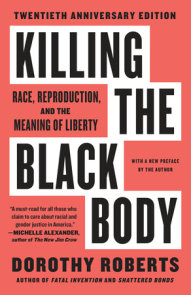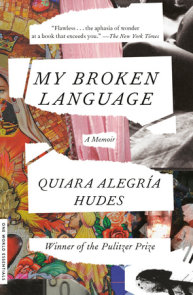READERS GUIDE
Questions and Topics for Discussion
1. “My ancestry was lost / in chains and boats across the seas / Am I aristocracy? / Do I belong to a great nation?” Discuss the questions she poses in these lines, and how slavery’s erasure of family history and roots affects the author.
2. Young writes, “In Halls, I am the bearer of a prophecy . . . They say I’m the culmination of a thousand generations of brilliant women, prayers, internal warfare, deferred dreams. . . . And because I bear this prophecy, I think it’s my fault every time one of their dreams dies.” Discuss the weight of these expectations, and how they could be helpful and harmful.
3. Why do you think the author chose to write this memoir in verse? How might it be different if she had written a standard, chronological memoir in prose?
4. Throughout the book, Young returns to the theme of shotgun weddings—and of her foremothers becoming mothers when they’re just girls themselves. “I am from five generations of shotgun weddings / Of women with stronger wombs than wits.” Why do you think this cycle repeated itself? What outside factors contributed? How did Alora break the cycle for herself?
5. Which poem, image, or line from the book has stayed with you the most? Why?
6. Young writes about all of the Black, female genius that has been lost to history for various reasons: Racism (then and now), the lack of someone to record that history, being overshadowed (“we all remember Rosa but we forget Claudette”), and more. What is the author saying about who we remember and who we forget? How did this make you think differently about the importance of storytelling and memory?
7. Collie, Young’s fourth great-grandmother, was born to a slaver and an enslaved woman, Amy. “I wonder if Collie ever looked at her skin like I do and thought about how it was the color of abuse,” Young writes. Discuss what she means by this.
8. Of all the women she writes about, why do you think Young chose to name her book for Gentry? What aspects of Gentry’s story resonated with you?
9. Walking Gentry Home contains a richness of references, from personal and historical to Greek mythology and popular culture. How do these references and allusions influence your reading experience?
10. How does Young address concepts that can be difficult to talk about, like colorism and domestic violence?
11. Discuss the poem about Monette’s Miss Halls pageant. Where do you see similar injustices playing out today?
12. One of the overarching themes of Walking Gentry Home is girlhood: Of running from it, of not being allowed to experience it, of missing out on it for any number of reasons. How did it make you think differently about girlhood?
13. “Burn your textbooks if they tell you there’s nothing / More to change.” What does Young mean by this?
14. Young writes both about famous Black women in history—Madam C. J. Walker and Ida B. Wells; Shirley Chisolm and Claudette Colvin; Aretha Franklin and Beyoncé—and the non-famous women in her own family. Why is it important to tell the stories of “regular” women alongside historical changemakers?
15. How did Walking Gentry Home make you think differently—or more deeply—about your own family line? How will you bear the responsibility of recording your family’s stories?






















